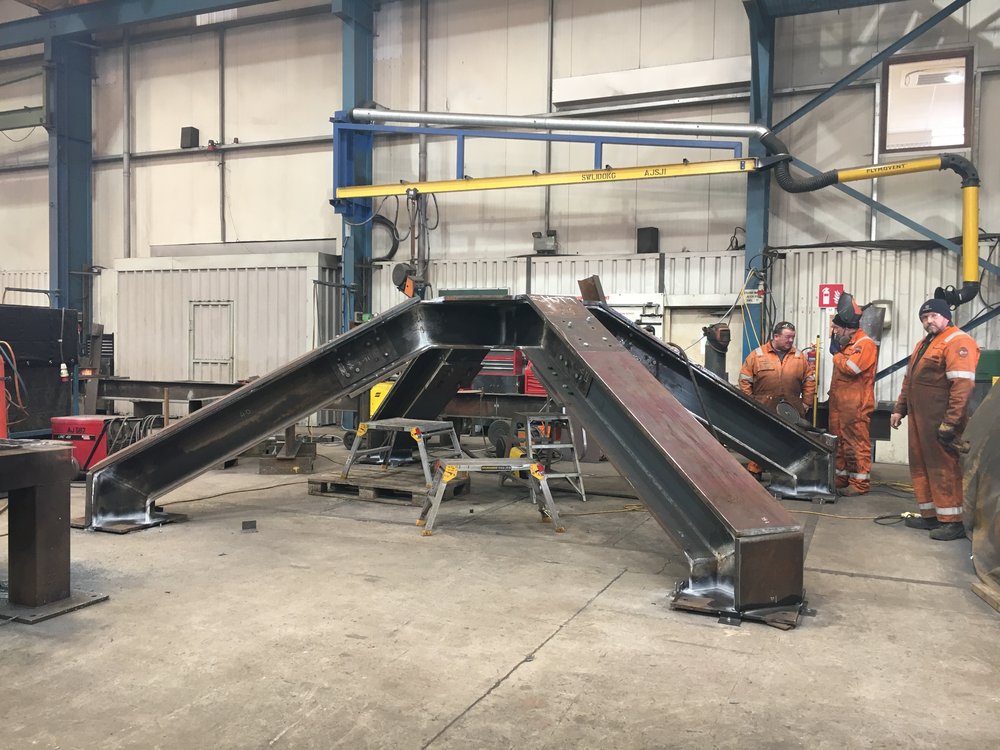
AJ Engineering has introduced Internet of Things (IoT) technology to help manage its carbon footprint and improve efficiency across its operations.
Securing funding and technical support from CENSIS – Scotland’s innovation centre for sensing, imaging, and IoT technologies – the Forres firm said that it is on track to realise savings on its annual electricity usage as a result of new smart monitoring systems.
The project formed part of the IoT Evolve programme, which was funded by the Scottish Government and Highlands and Islands Enterprise (HIE) to support SMEs in the region with the development and application of IoT technologies.
A series of connected sensors are now in operation across AJ Engineering’s site, enabling the management team to spot exactly where energy is being used and take steps to reduce consumption in particular processes or buildings. The technology has already highlighted ‘significant’ savings that can be made by reducing the heating and lighting at parts of the plant that had not previously been identified as large consumers of power.
Compared to standard smart meters, the IoT system provides ‘much more’ granular detail about specific pieces of equipment and circuits – giving the team better insights to support decision-making and its ambition to achieve net zero. Another benefit will be the cost savings on monthly overheads and fuel bills.
Having access to real-time data about the carbon footprint of its operations will also help AJ Engineering to communicate its green credentials to current customers and win new contracts, where partners may require the figures for their own carbon accounting protocols, the firm explained.
Graham Alexander, general manager at AJ Engineering, said, “Introducing this smart monitoring system has opened our eyes to how different parts of the business consume energy. The equipment has allowed us to have a much better appreciation of what aspects of our production and business are the largest energy consumers.
“As well as cutting our own carbon footprint, the technology will have benefits for customers across the sectors we operate in. They are increasingly asking us to supply information about our carbon footprint and the energy consumed by specific processes for their own emissions reporting. With access to accurate real-time data, we will be well-equipped to do so.”
CENSIS’s engineers developed a modular system with multiple sensors that transmit data wirelessly via a LoRaWAN network – managed by telecommunications company, North. An app-based dashboard is available to the company to help interpret and display the data remotely. Using an IoT network was identified as the most suitable option, given the site’s limited cellular coverage and equipment being located in harder-to-reach areas.
The project consortium hopes that the success of this project will inspire other SMEs in Scotland’s manufacturing sector to consider the adoption of similar IoT technologies.
Ally Longmuir, business development manager at CENSIS, added, “This was AJ Engineering’s first foray into the world of IoT and it is great to see the business realising the benefits of the technology almost immediately. Sustainability and carbon accounting are only going to become more critical as Scotland approaches its 2045 net zero target, and this is a great example of how digital adoption can support the wider goals and be applied to almost any industry.”








